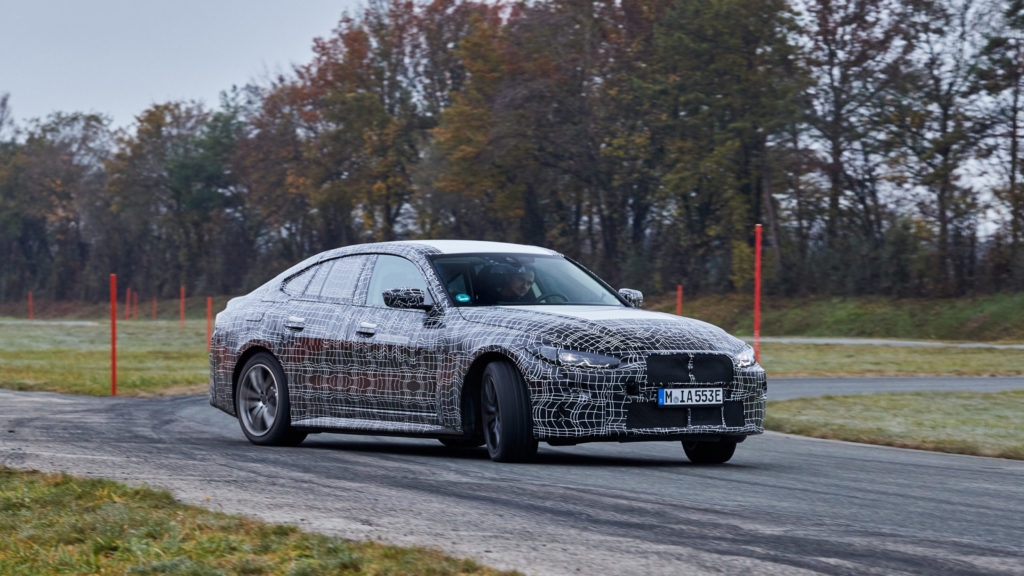How many people do you know who’ve moved on from owning one or more BMW models to a Tesla? There’s little denying that the Model 3 has consumed market share previously held by the 3 Series, and many are quick to blame BMW’s seemingly slow advancement into the EV space after the groundbreaking i3 and i8. Help is on the way though, and it’s going to take the form of the i4.
The i4 has been summarized as an electric 4 Series Gran Coupé, which is to say it’s essentially an electrified 3 Series with swooping body lines updated for the modern era. Designed to be fast and functional, the specifications BMW released for the i4 back in 2019 included range of up to 370 miles and the equivalent of 530 horsepower. Styling is bold and divisive—just look at the grilles, if you can even call them that on an EV—but the rest of the i4’s form factor is obvious: it’s a four-door sport sedan with seating for up to five and a respectably-sized trunk.
All of this is to say that, although it eschews traditional looks, the i4 is intended to be just as much a BMW as anything else the automaker has produced, from the E21 to the G20, for example. This means that, in addition to striking a balance between comfort and sportiness, the i4 must also transcend the phenomena of blistering EV zero-to-60 times by being able to perform on a twisted back road or track environment just as well.
According to BMW i4 project manager David Alfredo Ferrufino Camacho, “For the first time, we’ve developed a BMW with sporty DNA for purely electric driving entirely from scratch. The BMW i4 offers everything BMW stands for—and it’s fully electric, too.”
Modern EVs, especially those with a tilt towards performance, are known for incredible acceleration. Even with the instant torque of electric motors though, manufacturers must still contend with suspension systems which are largely unchanged from those used on gasoline or diesel vehicles. There are obvious limitations involved, and to appropriately cope, the i4 is coming with a model-specific dampening setup which is described as being to make the vehicle impervious to road imperfections, according to BMW.
The rest of the underpinnings and hardware have been appropriately selected to match, with speed-dependent servotronic power steering and big brakes to shed speed after a full throttle run. According to Camacho, “The BMW i4 conveys the feeling of being light and agile yet also solid and authoritative. With its superior directional reliability and high level of cornering stability, it seems to literally attach itself to the road. All electric vehicles are capable of fast straight-line acceleration. But that’s not enough for us at BMW.”
The i4 will likely be BMW’s first true volume seller in the EV space—the company has made over 200,000 examples of the i3 since its debut, but many more 3 Series over the same period—and from being docile and smooth on the daily commute to dynamic down a twisted backroad, it’s said to be easy to control. If any of that is starting to sound like quintessential BMW, you’re starting to catch on. Just because the brand which literally has motor as its middle name is going electric doesn’t mean they’re giving up on their core tenets.
Production of the i4 begins in Munich, where BMW’s main manufacturing site just recently underwent retooling specifically for the upcoming EV.—Alex Tock
[Photos courtesy BMW AG.]
